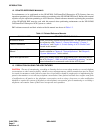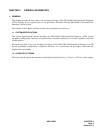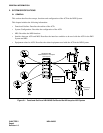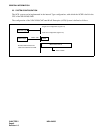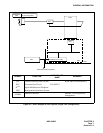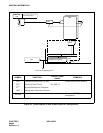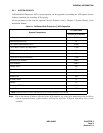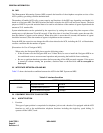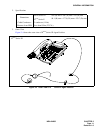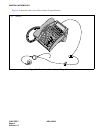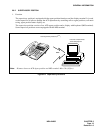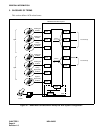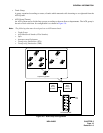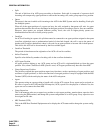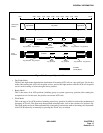
CHAPTER 2 NDA-24282
Page 10
Revision 1.0
GENERAL INFORMATION
2.4 MIS
The Management Information System (MIS) expands the benefits of the telephone reception services of the
ACD system by providing efficient administration.
The number of handled ACD calls, system capacity and functions of the MIS vary depending on whether it is
based on a Navigator MIS. The MIS calculates the traffic related to the ACD calls and issues reports. The basic
purpose of MIS is to provide statistical data to be used in calculations of the number of agents required and the
amount of C.O. trunk traffic.
System administration can be optimized by the supervisor, by setting the average delay time response of the
trunk group or split between 20 and 40 seconds. If the delay time is less than 20 seconds, agents become idle,
thus the number of agents can be reduced. When delay time is more than 40 seconds, the number of agents
should be increased. (Note the number of agents is dependent on the customers.)
From the MIS, the supervisor can change the office data related to the ACD, including the C.O. call destination,
overflow condition and the number of agents.
[Precautions for Use of Navigator MIS]
When using the Navigator MIS, please note the following points:
• If the customer uses the Navigator MIS on a 24-hour basis, be sure to install the Navigator MIS in an
air-conditioned room to ensure normal operation and preventing the hard disk from overheating.
• Be sure to perform shutdown procedure before powering off the MIS personal computer. If the power
is turned off without running the procedure, statistical data on the hard disk will be corrupted or
destroyed.
2.5 INTERFACE BETWEEN ACD AND MIS
Table 2-2 shows the interface condition between the ACD in the IMX System and MIS.
2.6 EQUIPMENT RELATED TO ACD SYSTEM
2.6.1 AGENT POSITION
1. Function
This type of agent position is comprised of a telephone, jack set and a headset. It is equipped with the ACD
functions as well as the multifunction telephone functions including the single-key speed dialing. It
operates off the 16ELCJ card.
Table 2-2 Interface Condition
CIRCUIT CARD INTERFACE CONDITION
ETHER
Physical Interface ETHER
Communication protocol TCP/IP
Data Transmission Speed 10 Mbps



